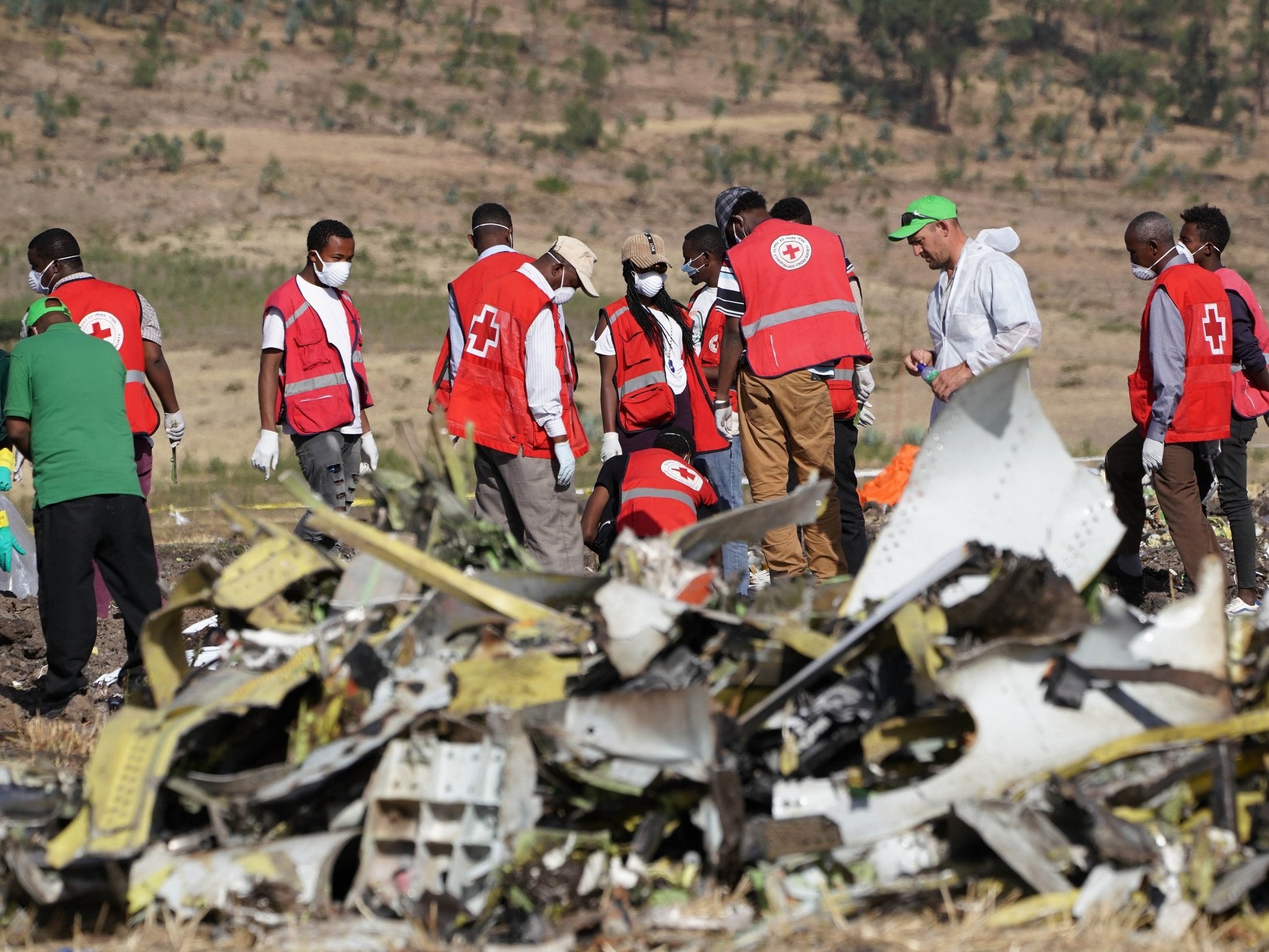Lion Air crash: Pilots' last words before plane plunged into sea revealed in cockpit voice recording
Another crew was shown how to save jet from same problem just a day earlier by an off-duty pilot, sources say
Your support helps us to tell the story
From reproductive rights to climate change to Big Tech, The Independent is on the ground when the story is developing. Whether it's investigating the financials of Elon Musk's pro-Trump PAC or producing our latest documentary, 'The A Word', which shines a light on the American women fighting for reproductive rights, we know how important it is to parse out the facts from the messaging.
At such a critical moment in US history, we need reporters on the ground. Your donation allows us to keep sending journalists to speak to both sides of the story.
The Independent is trusted by Americans across the entire political spectrum. And unlike many other quality news outlets, we choose not to lock Americans out of our reporting and analysis with paywalls. We believe quality journalism should be available to everyone, paid for by those who can afford it.
Your support makes all the difference.The pilots of a doomed Lion Air Boeing 737 Max flight desperately scoured a handbook to find out why the jet was plummeting downwards but ran out of time before it crashed into the Java Sea, killing everyone on board.
According to three people who have heard a cockpit voice recording from the aircraft, the captain and first officer on board the ill-fated flight JT610 searched through checklists in a race against time after the jet warned them it was in a stall and pushed the nose down in response.
It has also emerged that an off-duty pilot riding along in the aircraft just a day earlier helped another crew save the plane from the same issue.
The investigation into the crash in Indonesia in October 2018, which killed all 189 people on board, has taken on new relevance since the model was grounded last week after a second deadly accident in Ethiopia on 10 March.
According to a preliminary report issued in November, the first officer on board the Lion Air flight last year reported a “flight control problem” to air traffic control just two minutes after take-off and said the pilots intended to maintain an altitude of 5,000 feet.
The captain, who was at the controls, asked the first officer to check the quick reference handbook, which contains checklists for abnormal events, the first source with knowledge of the cockpit recording said.
For the next nine minutes, the jet warned the pilots it was in a stall and pushed the nose down in response.
The captain fought to climb, but the computer, still incorrectly sensing a stall, continued to push the nose down using the plane’s trim system, which usually ensures the aircraft flies straight and level.
The third source said: “They didn’t seem to know the trim was moving down. They thought only about airspeed and altitude. That was the only thing they talked about.”
The pilots of JT610 remained calm for most of the flight, the three sources told Reuters, and near the end the captain asked the first officer to fly while he checked the manual for a solution.
As the 31-year-old captain tried in vain to find the right procedure in the handbook, the 41-year-old first officer was unable to control the plane, two of the sources said.
“It is like a test where there are 100 questions and when the time is up you have only answered 75,” one of the sources said. “So you panic. It is a time-out condition.”
The Indian-born captain was said to be silent at the end before the plane hit the water, while the Indonesian first officer said “Allahu Akbar”, or “God is greatest”, a common Arabic phrase in the majority-Muslim country that can be used to express shock or distress.

The cause of the crash has not been determined, but a preliminary report mentioned the Boeing system, a faulty, recently replaced sensor, and the airline’s maintenance and training.
Boeing Co declined to comment while the investigation is ongoing, but the manufacturer said there was a documented procedure to handle the situation.
A different crew on the same plane the evening before encountered the same problem but solved it after running through three checklists.
However they did not pass on all of the information about the problems they encountered to the next crew, the November report said.
Two of the sources said a captain at Lion Air’s full-service sister carrier, Batik Air, was riding along in the cockpit and told the crew how to disable the malfunctioning flight-control system and save the plane.
His presence on that flight, first reported by Bloomberg, was not disclosed in the preliminary report.
The report also did not include data from the cockpit voice recorder, which was not recovered from the ocean floor until January.
French air accident investigation agency BEA said on Tuesday the flight data recorder in the Ethiopian crash that killed 157 people earlier this month showed “clear similarities” to the Lion Air disaster.
Since the Lion Air crash, Boeing has been pursuing a software upgrade to change how much authority is given to the Manoeuvring Characteristics Augmentation System, or MCAS – a new anti-stall system developed for the 737 MAX.
Soerjanto Tjahjono, head of Indonesian investigation agency KNKT, said the report could be released in July or August as authorities attempted to speed up the inquiry in the wake of the Ethiopian crash.
On Wednesday, he declined to comment on the cockpit voice recorder contents, saying they had not been made public.
Additional reporting by Reuters

Join our commenting forum
Join thought-provoking conversations, follow other Independent readers and see their replies
Comments